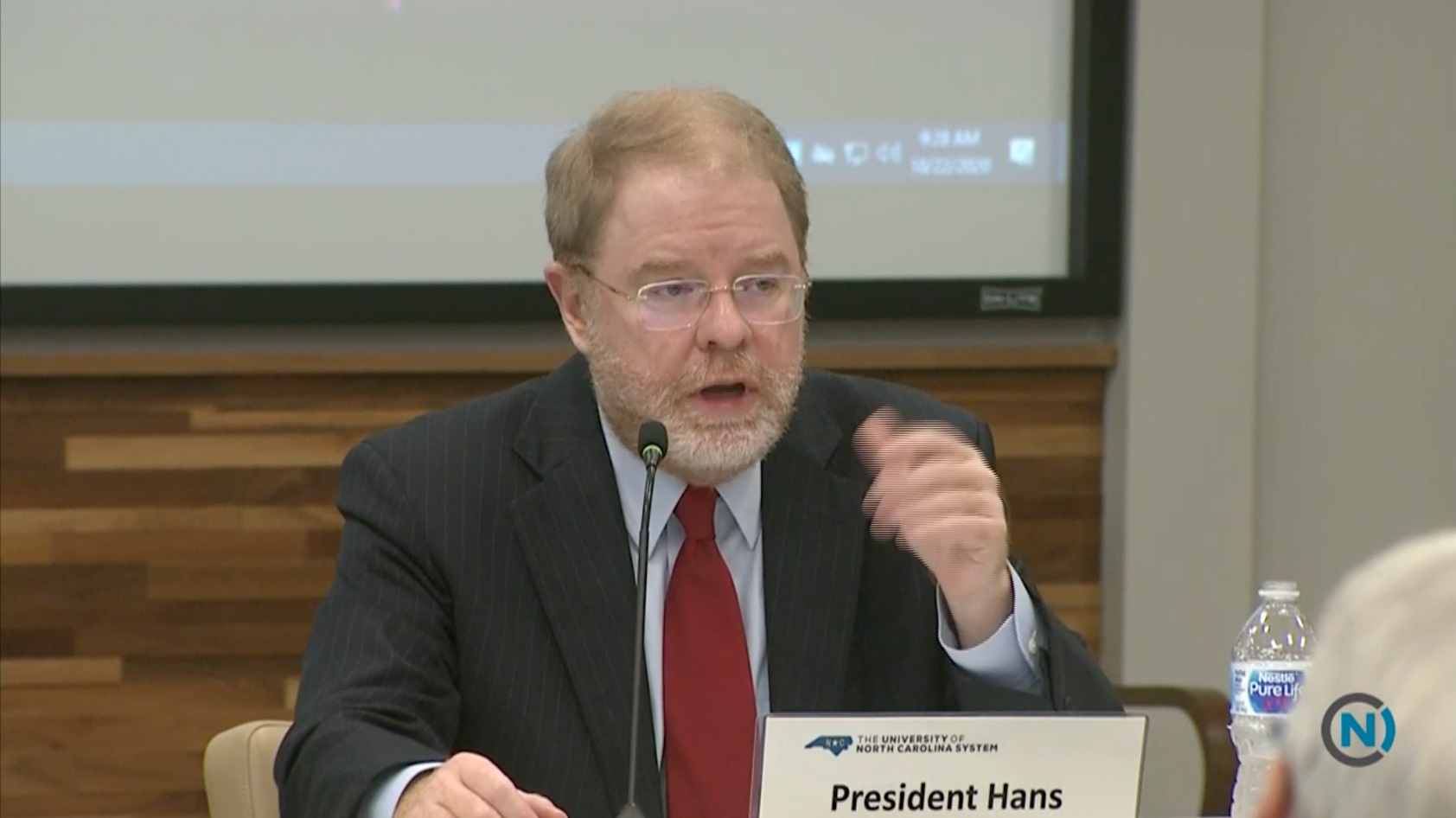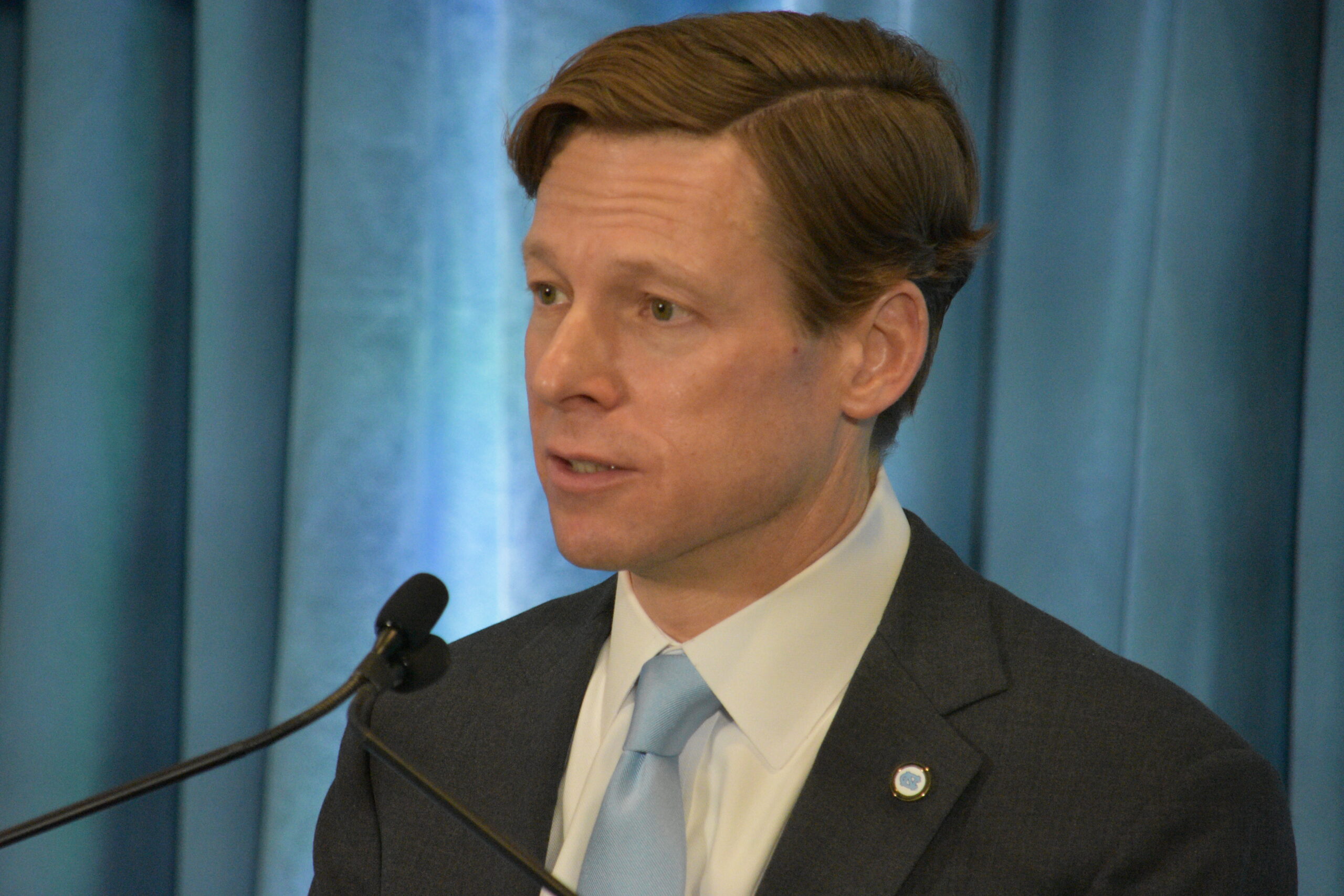One item on the UNC Board of Governors meeting agenda last Friday sparked a 30 minute debate and led to a $1 million penalty for the system’s flagship university.
The debate generated from a recommendation of the board’s Committee on Budget and Finance calling for an exception to be granted over UNC – Chapel Hill exceeding the cap on out-of-state freshman enrollees for the second consecutive year. The cap is set at 18 percent and the out-of-state population of first-year UNC students was at 19.5 percent.
“We’re in one of these situations again where we have a policy and we aren’t enforcing it like it’s written,” board member Craig Souza said. “And that concerns me.”
Budget and Finance Committee chair Harry Smith said that there was historically about a 50 percent exemption rate for universities facing this penalty.
UNC Chancellor Carol Folt said an “honest” error in forecasting resulted in the higher out-of-state numbers and that there was no intent to exceed the cap. Folt added that, with the recent negative media attention focused on the university due to the long-running scandal, administrators were uncertain if the high offer acceptance rate the university has enjoyed would continue.
“The good news is people really were sticking with the interest in Carolina,” Folt told the board, “and that is good. But I do take very seriously all the limits and the rules of the board.”
Board member Champ Mitchell also pointed out that the board had raised tuition for out-of-state students and that factored into projecting a lower enrollment rate.
“One of their thoughts at the time was that with these very large increases their acceptance rate would fall,” Mitchell said. “No surprise to me personally – perhaps because of my love for my alma mater – the acceptance rates went up instead of going down.
“That was part of the miscalculation.”
Mitchell added that it would be important to more accurately project enrollment numbers going forward.
“We have to keep in mind our constitutional mandate to educate the young people of this state nearly as free as practicable,” Mitchell said. “And if we don’t, I will guarantee you the General Assembly of North Carolina will help remind us with a shot upside the head.”
The board divided along lines of those wanting to allow the exception for this cycle and those of the opinion that if the policy is not being enforced, then the policy is useless.
In the end, the board voted to reduce the budget for UNC – Chapel Hill by $1,041,017 and the funds be reallocated to the board’s UNC Need-Based Grant Financial Aid Program.
Board member Marty Kotis pointed out that with the fine UNC will still have a positive net financial outcome because out-of-state tuition of the enrolled students over the limit more than covers the cost of the penalty.
Board chair Lou Bissette said at a press conference following the meeting that the one-size-fits-all cap that is in place right now needs to be examined.
“I think we all think that we need to do some work around the cap issue,” Bissette told reporters. “I do, particularly at UNC – Chapel Hill. And I think President Spellings will be addressing that with us as we go forward.
“I think there are a lot of issues there.”
Bissette said trying to craft a blanket policy for all of the 17 campuses is a “complicated issue.”
“We have some universities, like UNC – Chapel Hill, that have a huge number of out-of-state applications,” Bissette added. “And they’re at the 18 percent level every year, as is North Carolina A&T State University – and we did raise their limit.
“Then there are other universities who maybe have seven, eight, nine percent out-of-state applications.”
Bissette said this means that the policy impacts different universities in different ways.
“We’ve got 17 great universities,” Bissette said. “But they’re all different. And they all have different needs.
“So we want to look at that cap in light of those differing missions and needs.”
After the vote to penalize UNC – Chapel Hill, Chancellor Folt said she understood the discussion amongst the board was about the principle of having a policy and choosing not to enforce it and that she respected that position.






